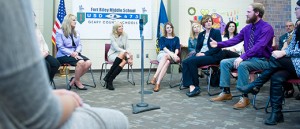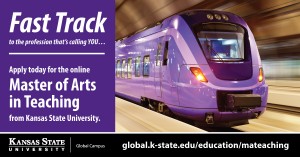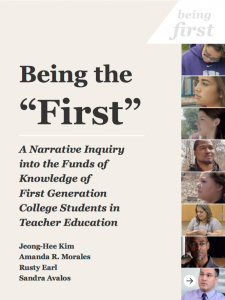
Jill Biden, Second Lady and co-founder of Joining Forces, was at Fort Riley April 6 where she visited local schools and complimented Dean Debbie Mercer on being an early adopter of the Educate the Educator initiative.
In an interview with “The Today Show” about her visit, Biden said she appreciates the way teacher preparation programs are embracing military-connected children.
“Teachers’ colleges have stepped up to educate people going into education so that they will realize that there are military children in their classroom and celebrate those children and make their transitions easier for them,” Biden said in the interview.
During her speech at the White House Convening on Operation Educate the Educator, Biden specifically thanked Dean Mercer for her support as K-State was one of the first 100 colleges in the nation to embrace the initiative. The college created a documentary “A Walk in My Shoes: Military Life” and developed a non-credit class for pre-service teachers wanting deeper knowledge about the needs of military-connected learners.
“I’d like to take a moment to thank Dean Deb Mercer, from Kansas State University, for being here today and facilitating last week’s discussion with the KSU student-teachers at Fort Riley Middle School. The work that you are doing — that your student-teachers are doing in the classroom — is so important. Thank you.”

